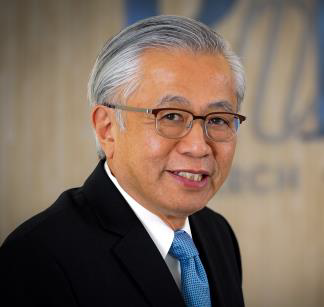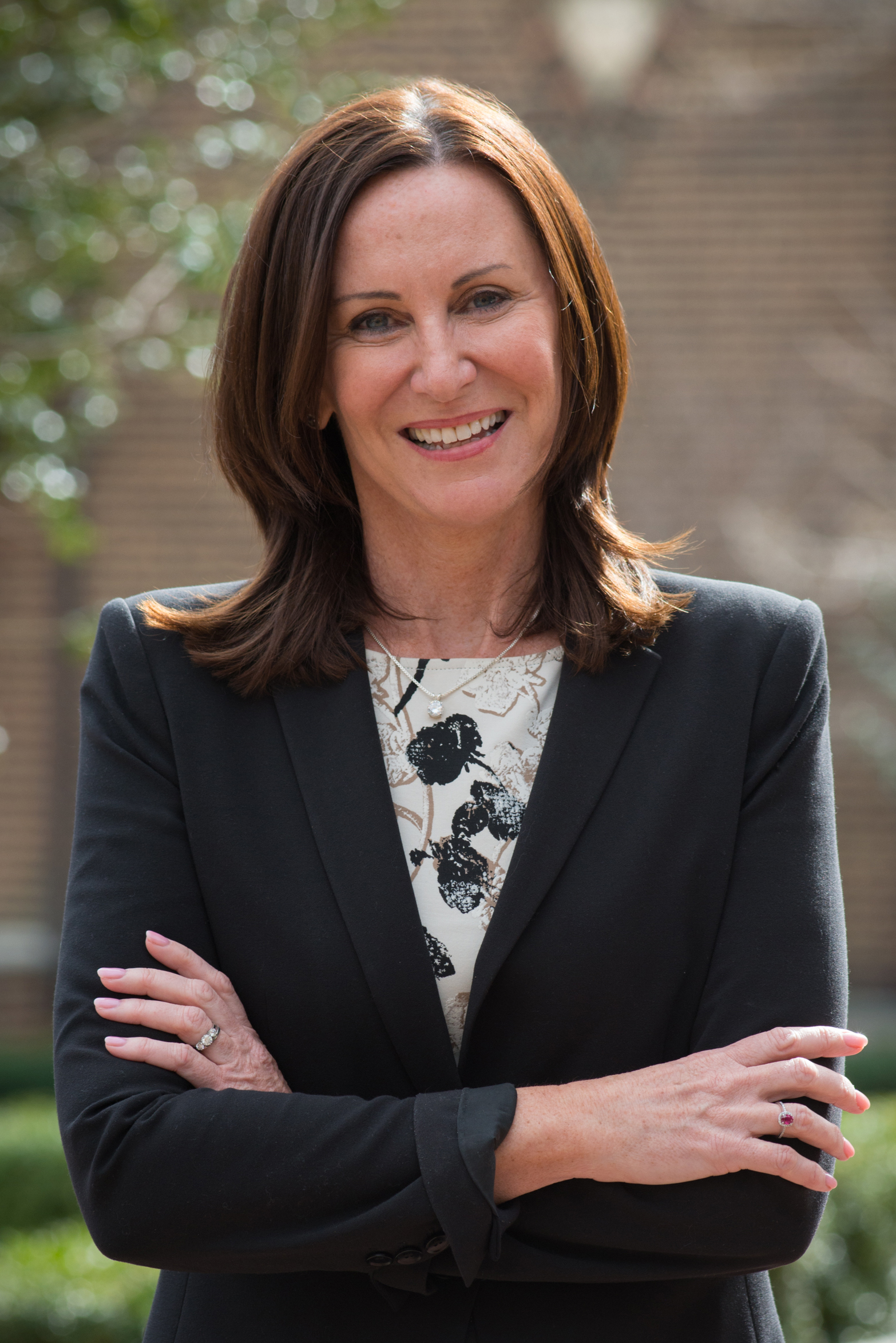The External Advisory Board (EAB) members is broad representative of the scientific missions of GHUCCTS and consist of representatives from funded CTSA institutions in order to benefit from their experience with implementing CTSA programs at their institutions. One member each will overlap with the EABs named for the BioInformatics and Research, Education, Training and Career Development components. In addition, members have been solicited from government agencies responsible for clinical research and health care policy research in the Washington, DC region, national organizations involved with training and education, foundations and industries. The EAB consists of 6 members, who will participate in semi-annual one-day, on-site meetings for the first 2 years of CTSA funding and in yearly meetings afterward. The primary goal of the on-site meetings will be to provide a general review of the GHUCCTS programs and goals, and to assess the degree to which milestones both for the overall program and each of its components have been achieved. These meetings will be planned and chaired by the Director of Tracking and Evaluation in consultation with the PIs. We anticipate both written and verbal presentations by the constituencies of the GHUCCTS and, in later years, targeted responses to questions that may be raised by the EAB at previous meetings.
Board Members:
 William W. Chin, MD
William W. Chin, MD
Bertarelli Professor Emeritus of Translational Medical Science, and Professor Emeritus of Medicine; Harvard Medical School
Former Executive Vice President, Science and Regulatory Advocacy;
Chief Medical Officer; Pharmaceutical Research and Manufacturers of America (PhRMA)
Dr. William W. Chin is Chief Medical Officer, Frequency Therapeutics and the former Executive Vice President for Science and Regulatory Advocacy and Chief Medical Officer at PhRMA (2013—2018). He was also the Executive Dean for Research, Bertarelli Professor of Translational Medical Science and Professor of Medicine at Harvard Medical School (HMS) from 2010—2013.
Show more
In this role, Dr. Chin spearheaded efforts to design and implement the vision for research at HMS, with special emphasis on interdisciplinary and translational research that crosses departmental and institutional boundaries. Prior to this position, Dr. Chin was at Eli Lilly and Company, where he worked for over a decade starting in 1999, last as senior vice president for Discovery Research and Clinical Investigation. Chin is a Harvard-trained endocrinologist and longstanding faculty member. His career is exemplified in part by his extensive bibliography of nearly 300 papers, chapters and books, most of which were generated during his 25 years on the Harvard Medical School faculty.
During his tenure as a faculty member in the Department of Medicine at Brigham and Women’s Hospital, he was chief of the Genetics Division and a Howard Hughes Medical Institute investigator and professor of medicine at HMS. As a pioneering molecular endocrinologist at HMS, Dr. Chin embraced the early use of emerging DNA technology to make important discoveries regarding the structure, function and regulation of hormone genes. His investigations often demonstrated a translational research theme, connecting basic laboratory discoveries to their physiologic relevance in animal models and humans. He has been honored with numerous awards for research, mentorship and leadership. Dr. Chin currently serves on the Board of Directors and Science Advisory Board of Regenacy Pharmaceuticals; SAB of Rhythm; Medical Advisory Board of Catabasis; and Board of Directors, A*STAR, Singapore. He received his AB from Columbia University and his MD from Harvard Medical School.
 Daniel Ford, MD, MPH
Daniel Ford, MD, MPH
Professor of Medicine, and Epidemiology and Health Policy and Management
Vice Dean for Clinical Investigation, School of Medicine;
Core Faculty, Welch Center for Prevention, Epidemiology, and Clinical Research, Johns Hopkins University
Dr. Daniel Ford is the David M Levine Professor of Medicine at Johns Hopkins. He received his M.D. from the State University of New York at Buffalo and came to Baltimore in 1982 to complete the Osler medicine residency at Johns Hopkins.
Show more
He received his master’s degree in public health from the Bloomberg School of Public Health in 1986 and completed a Clinical Epidemiology Fellowship at the National Institute of Mental Health before returning to Johns Hopkins. He has published more than 160 research papers and book chapters focused primarily on the interrelationship of depression and chronic medical disorders.
In 2005, Dr. Ford was appointed as the Vice Dean for Clinical Investigation and Institutional Official overseeing human subjects research for the Johns Hopkins University School of Medicine. He is the Principal Investigator for the Johns Hopkins Clinical and Translational Science Award (CTSA) from the NIH and was appointed the Director of the Institute for Clinical and Translational Research in 2007.
 Julianne Imperato-McGinley, MD
Julianne Imperato-McGinley, MD
Chief, Attending Professor, Endocrinology, Diabetes & Metabolism
Associate Dean for Translational Research and Education
Director and Principal Investigator for Clinical and Translational Science Center Weill Cornell Medical College
Dr. Julianne L. Imperato-McGinley is recognized as one of this nation’s finest endocrinologists. After graduating from the College of Mount Saint Vincent she entered the State University of New York Downstate College of Medicine, earned the M.D., and began a career as a medical researcher in endocrinology.
Show more
In the 1970’s, she learned of a remote village in the Dominican Republic in which one group of people all appeared female at birth but developed into males at puberty. Additionally suggestive, none of these men ever developed prostate problems. There she began pioneering research that helps to explain the biological mechanisms of identity and personality. She was able to define the role of male hormones in normal human development. Her research directly led to the first medical therapy to remedy prostate enlargement, and subsequently (much to the joy of middle aged men everywhere) to the first treatment for male-pattern baldness. She related studies in androgen physiology and was the first to challenge the widely held view that gender is socially acquired and are now considered classic.
Today she is the Principal Investigator and Director for the largest federal research grant ever awarded to the Weil Cornell Medical College. There, she serves as Associate Dean for Translational Research and Education and is known for telling your students, “You have to think because sometimes the disease doesn’t read the textbook.” She has authored more than 130 papers in peer-reviewed journals. Much of her research is included as standard fare in textbooks on endocrinology, psychology and urology, and she is ranked among the world’s most respected medical researchers.
Julianne was an Ad Laudem Dei honoree 2008.
 Emma A. Meagher, MD
Emma A. Meagher, MD
Vice Dean and Chief Clinical Research Officer
Director, Clinical and Translational Research Training
Senior Associate Vice Provost, Human Research Perelman School of Medicine, University of Pennsylvania
Emma A. Meagher, MD, serves as Professor of Medicine and Pharmacology at the Perelman School of Medicine at the University of Pennsylvania in Philadelphia, PA. Dr. Meagher graduated cum laude with her medical degree from the Royal College of Surgeons in Dublin, Ireland, and completed postgraduate training in Internal Medicine, Cardiology and Pharmacology.
Show more
In her roles as Vice Dean and Chief Clinical Research Officer, and as Senior Associate Vice Provost for Human Research, Dr. Meagher oversees the institution’s clinical research infrastructure and its portfolio, and sets the strategy for Penn Medicine’s clinical research enterprise. In her role as Director of Clinical and Translational Research Training, Dr. Meagher is responsible for the institutions’ Master’s degree programs, certificate programs, annual workshops, and symposia directed at undergraduates; medical, dental and nursing students; pre-doctoral and postdoctoral trainees; and faculty in the Perelman School of Medicine, School of Nursing, School of Dental Medicine, School of Veterinary Medicine, and School of Engineering and Applied Science; in addition to educational curricula directed at clinical research support staff.
Dr. Meagher is certified as a Master Trainer via the NIH-funded National Research Mentoring Network (NRMN), and initiated the development of research mentor training at Penn in 2012. Developed out of a collaborative effort between Penn and The Children’s Hospital of Philadelphia (CHOP), with materials from the University of Wisconsin and the Penn Wharton business school, over 100 faculty from Penn and CHOP have participated to date. She has also successfully incorporated a Mentee Training curriculum for Master’s in Translational Research students.
Dr. Meagher’s research interests are in the development of novel therapeutics for dyslipidemia, and the evaluation of innovative educational methodologies for clinical and translational scientists. She currently serves as Co-PI for the Penn CTSA, PI of the KL2 and TL1 grants, and as Past-President of the Association for Clinical and Translational Science (ACTS) and chairs its Education Committee.
 Philip R. O. Payne, PhD, FACMI
Philip R. O. Payne, PhD, FACMI
Robert J. Terry Professor and Director, Institute for Informatics (I2)
Professor of General Medical Sciences, School of Medicine
Professor of Computer Science and Engineering, School of Engineering and Applied Science Washington University in St. Louis
Dr. Payne is an internationally-recognized leader in the field of translational bioinformatics (TBI) and clinical research informatics (CRI). He is the founding director of the Institute for Informatics (I2) at Washington University School of Medicine in St. Louis.
He received his PhD with distinction in biomedical informatics from Columbia University, where his research focused on the use of knowledge engineering and human-computer interaction design principles in order to improve the efficiency of multi-site clinical and translational research programs.
Show more
Dr. Payne’s leadership in the informatics community has been recognized through his appointment to numerous national steering, scientific, editorial, and advisory committees, including efforts associated with the American Medical Informatics Association (AMIA), AcademyHealth, the Association for Computing Machinery (ACM), the National Cancer Institute (NCI), the National Library of Medicine (NLM), and the CTSA consortium, as well as his engagement as a consultant to academic health centers throughout the world.
Dr. Payne is the author of over 200 publications focusing on the intersection of biomedical informatics and the clinical and translational science domains, including several seminal reports that have defined a new sub-domain of biomedical informatics theory and practice specifically focusing upon clinical and translational research applications.
Dr. Payne’s current research is focused on efforts in the following areas: 1) knowledge-based approaches to the discovery and analysis of bio-molecular and clinical phenotypes and the ensuing identification of precision diagnostic and therapeutic strategies; 2) interventional approaches to the use of electronic health records in order to address modifiable risk factors for disease and enable patient-centered decision making; 3) the study of human factors and workflow issues surrounding the optimal use of healthcare information technology; and 4) the design and evaluation of open-science platforms that enable collaborative and cumulative approaches to biomedical data analytics.
 Jessica Henderson Boyd, MD, MPH
Jessica Henderson Boyd, MD, MPH
Dr. Jessica Henderson Boyd is the President and Chief Executive Officer of Unity
Health Care, the largest network of community health centers in Washington, D.C., serving nearly 85,000 patients. She has a wealth of leadership experience in the delivery of health care to medically underserved communities. Prior to joining Unity as its Chief Medical Officer, Dr. Boyd served as a consultant at McKinsey & Co. and a medical strategist at the Cystic Fibrosis Foundation. She also previously served as CMO at Baltimore Medical Systems, a large Federally Qualified Health Center in Baltimore, Maryland and is a practicing pediatrician, with a focus on asthma care. Dr. Boyd received her master's degree in public health from Johns Hopkins Bloomberg School of public health, her Doctorate in Medicine and master's degree in biology and biomedical science from Washington University School of Medicine, and her bachelor's degree from Harvard University.